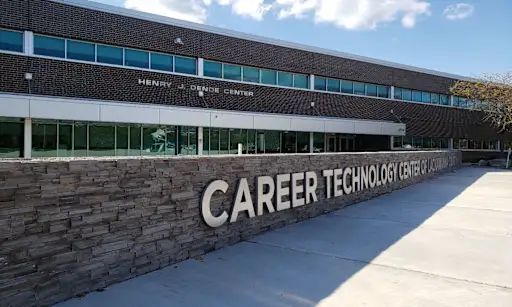Blog
Why is it Important for Schools to Offer Web Design Courses?

In an era where the digital landscape is ubiquitous and online presence is integral to personal and professional success, web design stands out as a crucial skill. As middle and students embark on their educational journey, introducing them to web design goes beyond creating aesthetically pleasing websites. It empowers them with a toolset that fosters creativity, critical thinking, and a deep understanding of digital communication.
Our Web Design course helps equip middle school and high school students with web design skills that they can build on in their future professional and educational endeavors. In addition to technical sills, our curriculum also teaches ethics in the workplace and how to handle intellectual property and copyrights. We prepare the whole learner for future success. Let’s look at why web design is important for middle and high school students, examining the practical, cognitive, and future-oriented advantages it offers.
Digital Literacy in the Modern Age
Digital literacy is no longer an optional skill; it is a fundamental requirement for active participation in the modern world. Students, who are digital natives, must not only consume digital content but also understand how it is created and presented. Web design education provides them with the knowledge and skills to navigate and contribute to the digital landscape effectively. Our course makes ethics, intellectual property and copyright come alive as learners create original work and understand why it is important to respect others, their work and value their own endeavors.
Creative Expression and Individuality
Web design is an art form that combines creativity with functionality. Students, often in the process of discovering their identities and interests, can use web design as a medium for creative expression. Designing a website allows them to showcase their unique perspectives, talents, and passions. Whether it's a personal blog, a portfolio, or a project highlighting a social cause, web design enables students to articulate their individuality in the digital realm.
Practical Application of STEM Skills
Web design is a multidisciplinary field that incorporates elements of science, technology, engineering, and mathematics (STEM). Students engaged in web design projects apply mathematical principles for layout and proportions, logic for coding, and problem-solving skills to address design challenges. This practical application of STEM concepts in a real-world context enhances their understanding of these subjects and demonstrates their relevance beyond the classroom.
Enhanced Critical Thinking and Problem-Solving
Designing a website requires careful consideration of user experience, information architecture, and visual aesthetics. Students immersed in web design projects develop critical thinking skills as they make decisions about layout, color schemes, and navigation. They learn to analyze problems, anticipate user needs, and iteratively refine their designs based on feedback. These problem-solving skills are transferable to various academic and professional contexts.
Preparation for a Technology-Centric Job Market
In the contemporary job market, a strong online presence is a valuable asset. Learning web design equips students with the skills to create and maintain their digital portfolios, which can be instrumental in college applications and job interviews. Furthermore, as many professions increasingly rely on digital communication, having a foundational understanding of web design becomes a valuable asset, regardless of the specific career path chosen.
Introduction to Coding and Programming Concepts
Web design often involves basic coding and programming concepts, introducing students to the world of coding in a user-friendly manner. While not all web designers need to be expert programmers, understanding the basics of HTML, CSS, and possibly JavaScript provides students with a glimpse into the logical and structured thinking required for coding. This exposure can spark an interest in further exploring coding and programming, potentially paving the way for future careers in technology.
Building Effective Communication Skills
Web design is not just about visual appeal; it's about effective communication. Students engaging in web design projects learn to convey information clearly and succinctly. They consider their target audience, create user-friendly interfaces, and employ visual elements to enhance the overall communication experience. These communication skills are invaluable in an era where effective digital communication is a key competency in various personal and professional contexts.
Encouraging Collaboration and Teamwork
Web design projects often involve collaboration, mirroring the collaborative nature of many professional settings. Students working on web design assignments learn to collaborate with peers, share responsibilities, and integrate different perspectives into a cohesive design. These teamwork skills are not only valuable in web design projects but also in preparing students for future collaborative endeavors in their academic and professional lives.
Understanding User-Centered Design Principles
Web design places a strong emphasis on user-centered design principles. Students learn to empathize with the needs and preferences of their intended audience. This focus on user experience cultivates a mindset that prioritizes the end user, a perspective that is applicable in various fields, from product design to customer service.
Adaptability and Lifelong Learning
The field of web design is dynamic, with design trends, tools, and technologies constantly evolving. Learning web design instills in students a sense of adaptability and a commitment to lifelong learning. As they navigate updates in design software, explore emerging design trends, and adapt their skills to evolving technology, students develop a mindset that embraces change and continuous improvement.
Contact Us Today
The importance of web design education for students extends beyond the confines of creating visually appealing websites. It empowers students with a diverse skill set that includes digital literacy, creativity, critical thinking, and practical STEM application.
Click here or call us at 913-764-4272 to schedule your free 20-minute demo of our Web Design course. We have helped countless teachers and students, and we would love to work with you.
Share To
Get in touch with us today!
You can book a demo directly using Calendly, call us directly at 913-764-4272 or 877-828-1216, or submit the form and we will reach out to you.
We look forward to helping you and your students.

Most Recent Posts




